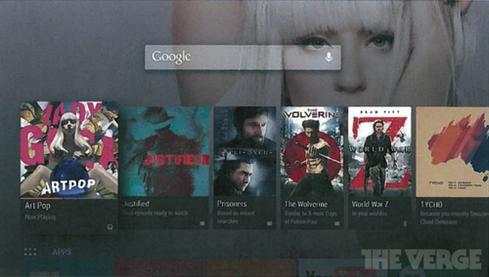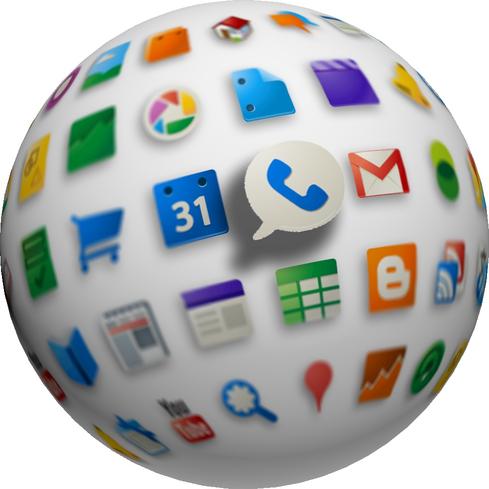Google's Android TV: Aim Lower
Still smarting from disinterest in Google TV, Google is working on a less ambitious, more appealing sequel.


10 Great Google Apps Tips
10 Great Google Apps Tips (Click image for larger view.)
Google had grand ambitions in 2010 to reinvent television in the image of a smartphone. It introduced Google TV to "to find a way to bring the entire Web to television," as Google group product manager Rishi Chandra put it at the time.
Google TV was going to bring search and apps to television. It was going to help people discover and manage content through personalization. It was going to make picture-in-picture viewing possible, so people could view shows, apps, and websites at the same time. It was going to give developers a chance to craft Android applications tuned to the living room viewing experience.
The public wanted something less than that: easy access to compelling content at a low price. When Google TV arrived -- from Logitech and Sony -- it had several problems. It wasn't as easy to use as a traditional TV, even with the complexity of added cable boxes, DVRs, and game consoles. Its content was no better than you could find on TV, and it cost too much.
What's more, the public grew fond of using mobile devices while watching TV. They saw the web as a way to complement TV viewing, rather than as a missing ingredient in their entertainment.
[How connected will future vehicles be? Read Honda Tests System To Warn Drivers Of Red Lights.]
The NPD Group suggested in late 2012 that efforts to marry the web and TV created something too complex for consumers. Despite interest in viewing broadband content on TVs, NPD argued that technology companies needed to focus on simplifying the user experience, rather than innovating. Anyone who has counted the number of remote control devices in the typical US home could come to the same conclusion.
Ironically enough, Logitech did just that but came to the wrong conclusion. It conducted a count of remotes in 2010 and found that almost half of all living rooms in United States, Germany, France, United Kingdom, Netherlands, Sweden, and Australia had four or more remotes. From this data, it concluded that consumers needed a single, unifying remote.
But remote controls are merely one symptom of the complexity of managing multiple sources of content. The issue is control in a larger sense -- not which handheld device controls what's on TV, but which entity controls what's on TV and who gets paid.
Despite the theoretical appeal of greater choice and simmering resentment about being forced to pay for unwanted cable channels, few TV viewers have shown interest in unleashing the chaos that comes with user-driven computing. Mostly, they still prefer the structured, familiar entertainment experience orchestrated by TV content and service providers.
That appears to be fine with content makers, which would rather not worry about the consequences of giving TV viewers the control they have on the web: the power to reprogram the experience, to copy content, and to block ads.
The answer, then, is not to provide one remote to rule them all, but to provide one remote with fewer buttons. That, apparently, is where Google is headed with Android TV.
Android TV, according to documents obtained by The Verge, represents Google's forthcoming attempt to deliver something less ambitious but more appealing than Google TV.
Google declined to comment. The Verge cites Google documents that describe Android TV as "an entertainment interface, not a computing platform" and as a service that's "all about finding and enjoying content with the least amount of friction."
In other words, Android TV can be expected look a lot like Amazon's Fire TV, Apple TV, and Roku streaming devices. And it appears that it will coexist with Google's Chromecast, because the company seems to like having its two software platforms -- Android and Chrome OS -- compete with each other. Expect some apps, but they will be straightforward entertainment apps, in keeping with Android TV's less-is-more ambition.
Streaming hardware appears destined to differentiate itself via exclusive content. Netflix, with House of Cards, has already demonstrated that people will watch exclusive shows. Amazon has done so as well with Alpha House. Microsoft said Monday that it had struck a deal to remake a Swedish series called Real Humans for its Xbox. And Yahoo, according to The Wall Street Journal, is close to ordering four original web series (subscription required).
If Android TV succeeds, it will be a consequence of what's showing, rather than the hardware under the hood.
Far from fading away in the face of consumer-class competition from Google, Skype, LinkedIn, and others, unified communications is enjoying new relevance in enterprises -- there's even an SDN connector for UC. To reflect these updates, InformationWeek revamped its UC survey for 2014. Take part in the InformationWeek 2014 Unified Communications Survey and be eligible to win a great prize. Survey ends April 18.
About the Author
You May Also Like






